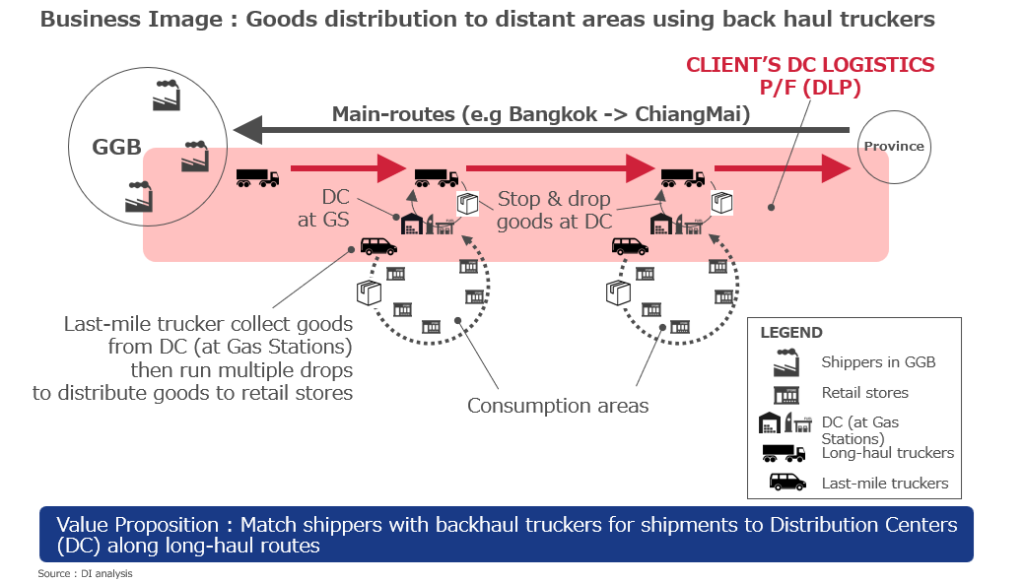
DI supported a global motorbike company in Southeast Asia
A global motorbike manufacturer observed a shift in consumer behavior as motorbike markets in Vietnam, Thailand, and Indonesia matured and became commoditized.
DI supported a global technology company in Thailand
• Client: a global conglomerate group
• Country: Vietnam
• Industry: Logistisc
Background:
Following the successful collaboration with DI to assess a new internet-based software service for the trucking business in Thailand, the client aims to explore broader business opportunities in partnership with gas station operators. Recognizing the strategic importance of gas stations as hubs for services and commerce in Thailand, the client envisions developing a mutually beneficial business model that integrates innovative solutions for trucking and logistics.
To realize this vision, the client seeks DI’s expertise in conducting market research, formulating hypothetical business model concepts, and engaging with potential gas station partners. The ultimate goal is to identify synergies between the trucking industry and gas station operations, craft a feasible business model, and establish partnerships that unlock growth opportunities. DI’s strategic and operational insights will be pivotal in helping the client navigate the competitive landscape and successfully position the new venture.
Support Overview:
DI’s role in this project involves a comprehensive, three-phased approach to address the client’s objectives:
Market Research and Industry Analysis:
DI will conduct an in-depth analysis of the trucking and gas station sectors in Thailand, identifying market trends, customer demands, and competitive dynamics. This research will evaluate how gas stations can serve as strategic touchpoints for trucking businesses, focusing on value-added services such as fleet management solutions, fueling optimization, and driver amenities.
Business Model Formulation:
Based on the findings, DI will conceptualize hypothetical business models integrating the trucking and gas station ecosystems. These models will include value propositions, revenue streams, operational frameworks, and potential technological enablers. DI will ensure the concepts are tailored to Thailand’s market conditions and aligned with the client’s goals for innovation and scalability.
Partner Engagement:
DI will identify and engage potential gas station partners, facilitating discussions to assess mutual interests and synergies. This includes presenting the proposed business models, gathering partner feedback, and refining the concepts to ensure feasibility. DI will also support the client in establishing initial terms for collaboration and preparing for pilot project implementation.
Image: DI’s simplified strategy proposal for co-implementation in collaboration with the client


A global motorbike manufacturer observed a shift in consumer behavior as motorbike markets in Vietnam, Thailand, and Indonesia matured and became commoditized.

A global shipping carrier, having solidified its presence across the logistics value chain, sought to expand its operations in Vietnam, Cambodia, and Myanmar.

A leading Japanese transportation company explored prospective business development and capital investment opportunities in Vietnam, targeting both B2B and B2C transportation segments. The B2B segment focused on traditional services for domestic manufacturing, distribution, and retail activities, while the B2C segment concentrated on the rapidly growing e-commerce market.

A client exploring the auto-lending market in Vietnam faced a significant challenge: the absence of a reliable credit rating system, which prolonged screening processes and increased the risk of ineffective decision-making. These inefficiencies created barriers to market growth and constrained the ability of lenders to extend loans confidently.
L7-11, 7th Floor, Vincom Center, 72 Le Thanh Ton Street, District 1, HCMC, Vietnam
info.vn@dreamincubator.com.vn
+84 28 3827 8450